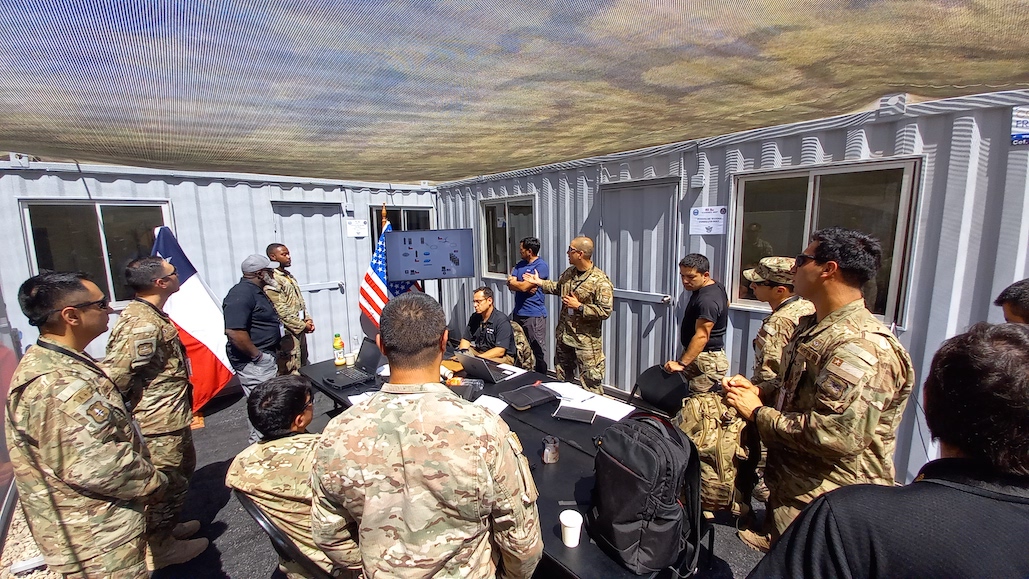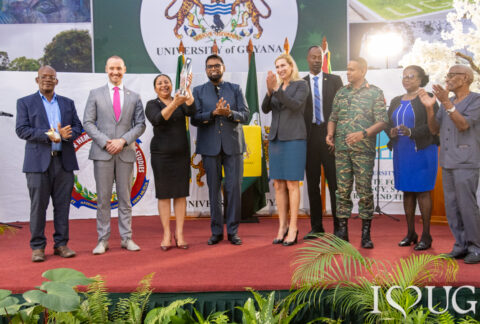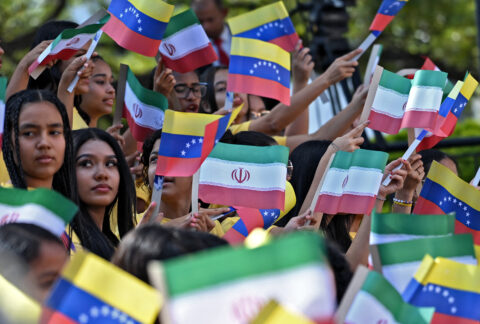The Chilean Army’s Special Operations Command (Cope), together with military personnel from U.S. Special Operations Command South (SOCSOUTH), carried out a communications exercise (COMEX), to develop capabilities and integrate communications means, Cope said on social media.
“This COMEX is the first communications exercise between the Special Operations Brigade [BOE] Lautaro and SOCSOUTH, exclusively with communications personnel,” Chilean Army Captain Juan Pablo Pérez, Cope’s BOE communications commander, told Diálogo on March 25. “There was mutual validation between our forces.”
The combined joint exercise was held at BOE headquarters in Colina, central Chile. Ten communications officers from SOCSOUTH’s J6 and U.S. Army’s 112th Special Operations Signal Battalion participated, the BOE told Diálogo.
During the exercise, February 13-17, participants exchanged technical and operational experiences and tested the communications knowledge and interoperability of the respective units, such as through tactical radio, and remote advice and assist virtual accompany kit, SOCSOUTH said via Facebook. For this purpose, a communications laboratory was created at BOE Lautaro, seeking to simulate the real deployment of a communications team with command and control equipment, using the situational mapping of the Colina terrain, where the brigade is located.
“Whoever has the best performance, knowledge of command and control systems, is the one who will have superiority in the scenario, both in combat and in operations other than war, such as disaster response, peacekeeping missions, and combined joint exercises,” Capt. Pérez said. “Everything we do converges to obtain optimal information flow capability to command posts, to enable optimal decision-making for commanders at different levels of command, and thus decrease collateral damage and error in any operation.”
“In communications, it’s fundamental to have interoperability not only in the execution of operations between armed forces, but also with other civilian entities in their emergency capabilities,” Guillermo Holzmann, Chilean defense analyst and academic at the School of Economic and Administrative Sciences of the University of Valparaíso, told Diálogo. “This generates effectiveness in the area of operations, and concrete results that strengthen command and control capability in case of conflict, support the community in case of emergencies, or safeguard sovereignty.”
COMEX was conducted as part of preparations for the larger exercise Fused Response, a U.S. Joint Chiefs of Staff-directed, SOCSOUTH-sponsored annual training conducted with several countries of the region, which is designed to improve urgent crisis action planning and joint integration with partner nations and government agencies. Fused Response 23, which the Chilean Army is preparing in conjunction with SOCSOUTH, will take place late April-early May in central Chile with the participation of SOCSOUTH and Cope special forces, among others.
The Chilean Army’s Cope was created in 2020 as part of modifications designed for the Army’s new senior structure and reports directly to the Army’s commander in chief, the institution indicated.
The command integrates the BOE Lautaro, the Intelligence regiments, and the assets of the Army Aviation Brigade in the unit with the “highest readiness and availability of the Army,” the institution stated.
“For the BOE, the relationship with SOCSOUTH is extremely important […]; they put all their knowledge and experience into practice quickly and that serves us very well,” Capt. Pérez said. “The direct bond with them allows us to continue developing new capabilities that go hand in hand with international development.”
Fused Response is not the only exercise Cope will conduct this year in conjunction with SOCSOUTH. In August, both forces will be put to the test in Southern Star, a Chilean Joint Chiefs of Staff-organized joint exercise, executed by Cope, with deployments to be conducted in the vicinity of the cities of Antofagasta in the north, Santiago in the central area, and Punta Arenas in the south.
“Chile is a long strip of territory, and it has different types of weather conditions and a complex geography,” Cap. Pérez said. “Our country’s qualities make it attractive for SOCSOUTH.”









